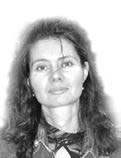Performance as the basis of goal-directed behavior
Keywords:
motivation, behavioral act, Fisher's exact test.Abstract
Objective of the study was to evaluate the effectiveness of students entering a specialized university faculty, taking into account their motivation for future professional activities.
Methods and structure of the study. The study was carried out on the basis of the results of the competitive selection of 251 students in the period from 1996 to 2000. To select the best of the most motivated students for future activities, students of the 2nd and 3rd courses of specialized universities of the Russian Federation with high educational results were admitted to competitive tests.
Results and conclusions. The dominant learning motivation, reflecting the intellectual preparation of the student, his success in mastering the fundamental disciplines is the leading one in the effectiveness of admission to a specialized research faculty. At the same time, the student's creative abilities are an important, however, independent characteristic of the individual. Thus, emotionally colored motivation is the basis for the effectiveness of a behavioral act.
References
Anokhin P.K. Teoriya funktsionalnoy sistemy kak predposylka k postroyeniyu fiziologicheskoy kibernetiki [Theory of a functional system as a prerequisite for the construction of physiological cybernetics]. Biologicheskiye osnovy kibernetiki. Collection of scientific papers. Moscow: AN SSSR publ., 1962. pp. 74-91.
Anokhin P.K. Biologiya i neyrofiziologiya uslovnogo refleksa [Biology and neurophysiology of the conditioned reflex]. Moscow: Meditsina publ., 1968. 546 p.
Anokhin P.K. Uzlovyye voprosy teorii funktsionalnoy sistemy [Nodal issues of the theory of functional systems]. Moscow: Nauka publ., 1980. 196 p.
Glantz S. Mediko-biologicheskaya statistika [Medical and biological statistics]. Moscow: Praktika publ., 1998. 459 p.
Ionkina E.G. O kiberneticheskoy osnove teorii funktsionalnykh sistem v fiziologii [On the cybernetic basis of the theory of functional systems in physiology]. Obozreniye prikladnoy i promyshlennoy matematiki. 2017. Vol. 24. No. 1. pp. 64-66.
Kramer G. Matematicheskiye metody statistiki [Mathematical methods of statistics]. Moscow: Mir publ., 1975. 648 p.
Orlov Yu.M., Kozlovskaya Z.P. Metodicheskiye ukazaniya k sostavleniyu ekzamenatsionnykh testov po fundamentalnym distsiplinam v meditsinskom institute [Guidelines for the preparation of examination tests in fundamental disciplines at a medical institute]. Moscow: Uchebno-metodicheskiy tsentr I MMI pubol., 1984. 35 p.
Simonov P.V. Emotsionalnyy mozg [Emotional brain]. Moscow: Nauka publ., 1981. 214 p.
Simonov P.V. Motivatsionnyy mozg [Motivational brain]. Moscow: Nauka publ., 1987. 237 p.
Sudakov K.V. Obshchaya teoriya funktsionalnykh sistem [General theory of functional systems]. Moscow: Meditsina publ., 1984. 224 p.
Sudakov K.V. Razvitiye teorii funktsionalnykh sistem [Development of the theory of functional systems]. Selected works: Vol.1. Moscow: NII normalnoy fiziologii RAMN publ., 2007. 343 p.
Fisher R.A. Statisticheskiye metody dlya issledovateley [Statistical methods for researchers]. Moscow: Gosstatizdat publ., 1958. 267 p.
Fisher R. A. Statistical Methods, Experimental Design, and Scientific Inference. Oxford: Oxford Univ. Press, 1990. 870 p.

Downloads
Published
Versions
- 28-04-2023 (3)
- 27-04-2023 (2)
- 27-04-2023 (1)

